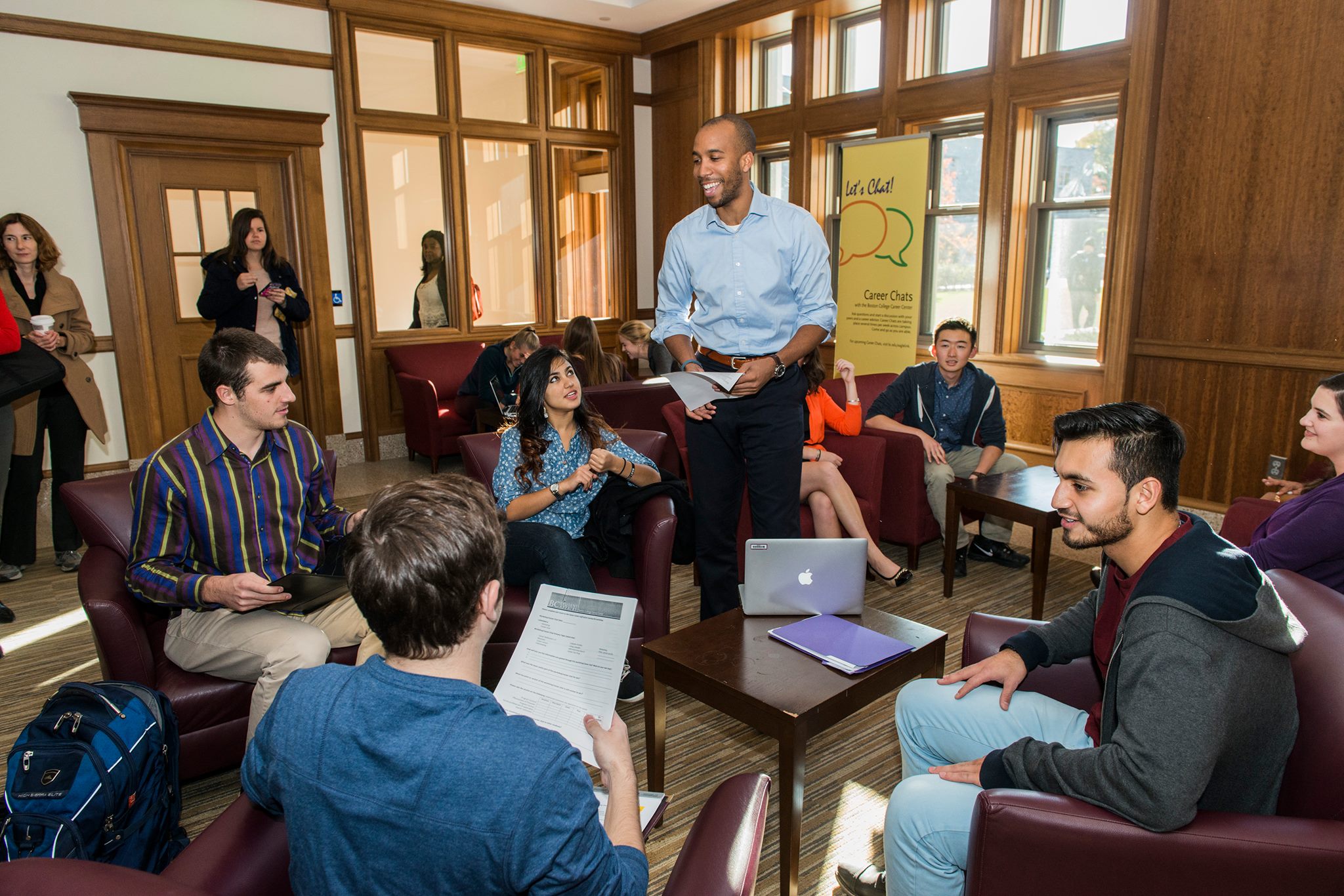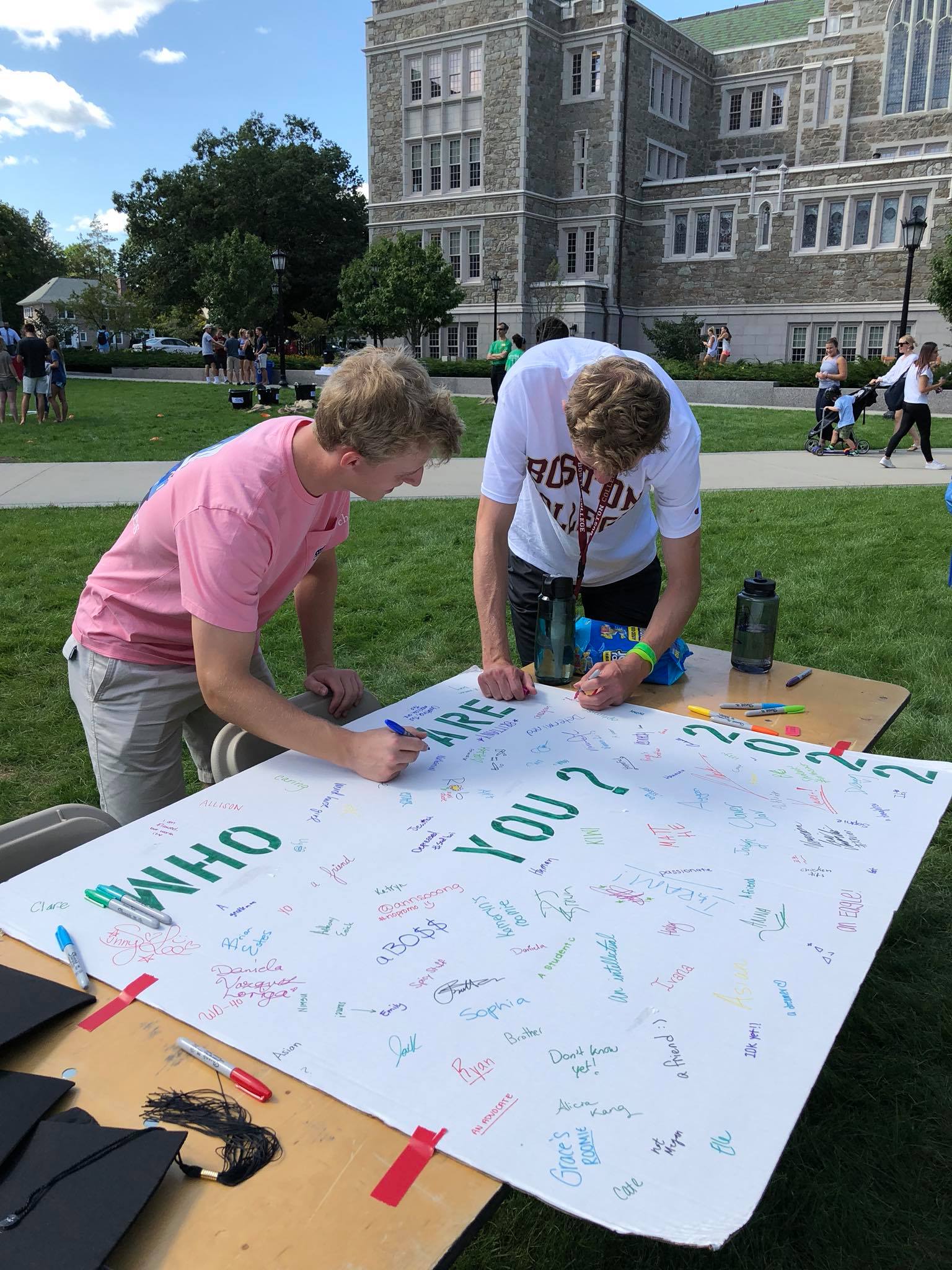Most college campuses boast a career center: some facility with a trained group of professionals who help students find jobs and internships both while they’re at school and after graduation. Every college student should find theirs at some point, between all the frat parties and mental breakdowns, of course.
So how does one go about using the career center? What is it there for? Can I just walk in aimlessly? It’s just for seniors, right? Wait… it’s not? I sat down with Rachel Greenberg, associate director of the BC Career Center, to pick her brain about how we as college students can take full advantage of the resources our school puts at our disposal.
One key point Greenberg made clear from the beginning is that, career-wise, people enter college at different stages. And while many of us want exact timelines of when we should be getting internships, figuring out our majors and even finding a career we’re passionate about, there simply isn’t one template that can apply to every college student everywhere. “It’s not a linear process,” said Greenberg. Each student embarks upon his career path at a different rate and there’s nothing wrong with that.
What about students who feel lost or uncertain about the career path they want to take? “So many students feel that way. That’s totally normal and I think it’s a good thing because that lack of certainty, as uncomfortable as it might be, forces you to really explore and think about your options and that’s really exciting. And if you go through that process, you’re going to come out on the other side pretty well-educated about the decision you’ve made,” said Greenberg.

Career centers are full of people who are totally equipped to help you figure all that out. BC’s career center even has a ton of assessment tools to help dazed and confused students who don’t know what they want to do with their lives (*cough, cough* me) decide just that.
Greenberg also talked about the value of a liberal arts education. This might shock some readers, but hopefully it eases the minds of those of you who believe your major will determine your career, how many children you’ll have, your future cat’s name and even what brand of denture paste you’ll use in your golden years. “A student can do almost anything with any major. There is no direct correlation in most cases between major and career. We tell students to choose a major they love and choose a career they love. And whether those two things are related or not, they are absolutely going to have gained skills from their academic experience that translates into a career, even if they don’t necessarily see that the content is 100 percent related,” said Greenberg.
Boom. Knowledge dropped. You’re welcome. Your major doesn’t set you down an inescapable life path with one clear end.
My final revelation is simple but extremely important. I learned that your career center can even help you speak with your parents about studying what you want, instead of what your parents want. “We equip students with data and resources and guide them through what that conversation might look like,” said Greenberg.
The career center is not just a place for practical career advice or interview prep. Rather, it is staffed with individuals who genuinely want what’s best for students. They are with us on our journey to employment, no matter how rocky that path may be. So here’s something no one thinks about too often, especially us self-absorbed college kids: They want to help you at the career center. They want to help you become everything you want to become, so don’t be afraid to go in there and take advantage of these extraordinary people.
“We want students to see that this is their life and these are their decisions and they’re going to be the ones who have to live with them. We want them to be happy and feel fulfilled,” said Greenberg. And though I make no claims about the sincerity of every college career center employee across the country, most of the people that staff career centers must have a real passion for what they do and genuinely care about helping students find their paths; they certainly don’t do it for the glory.
What they do for us college students is undoubtedly admirable and surely under-appreciated. So thank you, college career center counselors and staffers. You keep us sane; you keep us grounded. We’d be lost without you.
How to find your career goals—then achieve them.
Written by Alexandria Sese, English, freshman, University of Illinois
The first step toward your life goals is knowing yourself. Camille Helkowski, M.Ed., Associate Director of Loyola University, Chicago Career Development Center, said that one of the most common mistakes college students make when planning for long term goals is that they don’t know themselves well enough to make a decision they will be happy with in the long run.
This is why college career centers, like the one at Loyola University, encourages students to speak with a counselor or take the workshops they offer to help students understand themselves better. In doing so, they are able to devise a plan that will truly work for them. Helkowski said, “Keep talking, keep exposing yourself to new things. Let yourself be an explorer.” You never know how your experiences might shape the best plan for you.
Once you know yourself and you have a clear idea of what you want to achieve, there are tools you can employ to help you realize your goals. One of these is a website called MyPlan.com. MyPlan is a useful source that students can take advantage of when researching their options. It is an up to date database of essential career and college information designed to help a college student, “explore options and bring clarity and insight into figuring out what’s right for you.”
What makes MyPlan so unique is that the information available to students is provided by a community of professionals from different industries. This allows students to have access to a diversity of insights, opinions and advice that will help them figure out what is best for them without having to make the same mistakes others have already learned from.
For short-term goals, there are always budget-friendly wall calendars and weekly planners. These are perfect for managing your week so you are never overloaded with activities or idle for days. Mapping out your week is a tangible way of preparing for tasks such as writing a term paper or studying for midterms.

In addition to this, technology has been catching up with the students’ need to master time management. Mobile devices such as the iPhone or Blackberry can also act as organizers. They’re efficient for planning out your day so you are sure to be on top of everything, hour by hour, with the use of various applications. “They can break, though,” said Justin Boulden from the University of Illinois at Chicago. “And they’re expensive, too.”
Planning out your college career is not as daunting as it seems. The tools available nowadays not only allow students to devise a more efficient and well-informed plan for post-graduate goals, but they also make it a lot easier to stay with those plans.
Keep in mind though that it is more than planning to achieve your goal. “Career choices need more than information,” said Helkowski. It also takes experience and wisdom to really get what you want in life. But achieving your ultimate goal is not everything. Always keep in mind that the journey matters just as much as your destination.
*Updated September 21, 2015 by Alexandria Sese to include “Achieving Your Goals.”



















